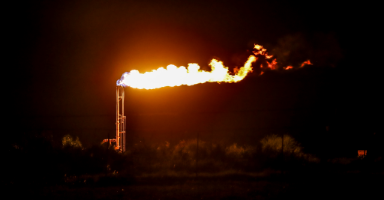
The volume of greenhouse gases released far exceeds what regulators know
AUSTIN, Texas — Wayne Christian wanted to brag, he said, rocking in his burgundy leather chair atop the dais of the powerful Railroad Commission of Texas.

U.S. oil and gas companies have burned off at least 3.5 trillion cubic feet of natural gas over much of the last decade, while unknown amounts of the methane-rich gas have flowed directly into the atmosphere.
Regulators are largely in the dark about these volumes, even as they try to slow the pace of global warming. But advances in satellite data reveal the true extent of these greenhouse gases.

AUSTIN, Texas — Wayne Christian wanted to brag, he said, rocking in his burgundy leather chair atop the dais of the powerful Railroad Commission of Texas.

When companies flare, they do more than burn natural gas. They burn money.
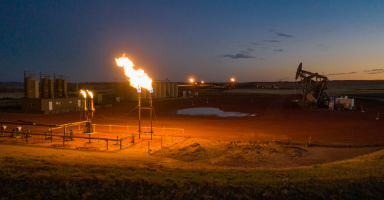
NEW TOWN, North Dakota – Powerful flames of burning natural gas shine brightly a few miles in any direction from Mark Fox’s office on the Fort Berthold Indian Reservation.
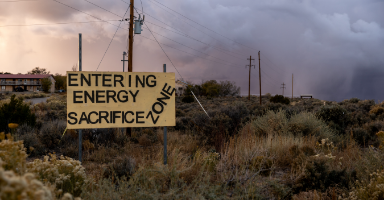
COUNSELOR, New Mexico — Bright pink flags mark a swath of newly cleared land, rubber water hoses snake along the roadside and pump jacks dot the horizon, all signs of the state’s growth as an oil…
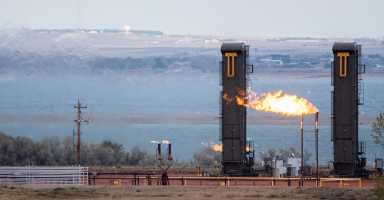
Flaring and venting are oil and gas industry practices that allow companies to dispose of the natural gas they extract that is not used or sold. Carbon dioxide and methane, byproducts of flaring and venting, are both greenhouse gases.
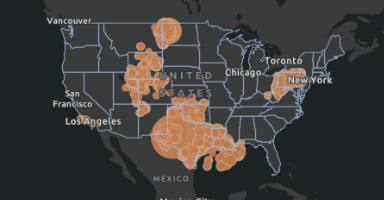
The Howard Center for Investigative Journalism gathered industry flaring data for the 13 states designated by the U.S. Energy Department as having significant ongoing or potentially increasing flaring activity.
Aydali Campa, Jimmy Cloutier, Sarah Hunt, Mollie Jamison, Isabel Koyama, Laura Kraegel, Maya Leachman, Michael McDaniel, Andrew Onodera, Kenneth Quayle, Nicole Sadek, Isaac Stone Simonelli, Rachel Stapholz, Sarah Suwalsky, Zoha Tunio, Zachary Van Arsdale, Alexis Young
Rachel Gold, Grace Oldham
Maya Leachman
Jimmy Cloutier, Isaac Stone Simonelli
Aydali Campa, Mollie Jamison, Michael McDaniel, Alexis Young, Jimmy Cloutier, Isaac Stone Simonelli, Isabel Koyama, Laura Kraegel, Sarah Suwalsky
Isaac Stone Simonelli, Aydali Campa, Jimmy Cloutier, Mollie Jamison, Isabel Koyama, Laura Kraegel
Zachary Van Arsdale, Nicole Sadek, Andrew Onodera
Isaac Stone Simonelli
Sarah Suwalsky, Rachel Stapholz, Isabel Koyama, Jimmy Cloutier
Ian McGibboney
Sarah Cohen
Maud Beelman, Lauren Mucciolo
Special thanks to Gregg Leslie, executive director, Jackson Polansky and Jacob Karr of the First Amendment Clinic at ASU’s Sandra Day O’Connor College of Law, and to Shea Lemar, GIS project manager, and Amy Frazier, assistant professor, ASU School of Geographical Sciences and Urban Planning.